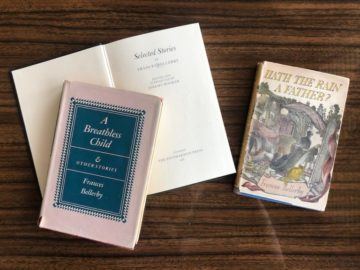Lucy Scholes at The Paris Review:
 In Women’s Fiction and the Great War (1997), Nathalie Blondel argues that Bellerby spent the rest of her life replaying this grief in her fiction. “People live double lives” in Bellerby’s stories, Blondel explains: they exist in the land of the living while also “dwelling in memories of the dead.” Like Sabine Coelsch-Foisner—who, in her chapter on women’s writing in the first half of the twentieth-century in The British and Irish Short Story (2008), argues that “Bellerby’s stories typically convey a halt in the continuum of life and verge on the unspeakable”—Blondel highlights how Bellerby demonstrates this linguistically: “the estrangement of the bereaved from the world of the living is imaged through their estrangement from language itself.”
In Women’s Fiction and the Great War (1997), Nathalie Blondel argues that Bellerby spent the rest of her life replaying this grief in her fiction. “People live double lives” in Bellerby’s stories, Blondel explains: they exist in the land of the living while also “dwelling in memories of the dead.” Like Sabine Coelsch-Foisner—who, in her chapter on women’s writing in the first half of the twentieth-century in The British and Irish Short Story (2008), argues that “Bellerby’s stories typically convey a halt in the continuum of life and verge on the unspeakable”—Blondel highlights how Bellerby demonstrates this linguistically: “the estrangement of the bereaved from the world of the living is imaged through their estrangement from language itself.”
The impact of her brother’s death manifests most explicitly in these stories that make direct reference to the war, but grief filters into many of the other pieces, too: “Come to an End,” in which a father struggles to tell his son that the boy’s little sister has been killed in an accident, or “Such an Experienced House,” another unexpected ghost story, in which a musically gifted child creeps downstairs one night to find out who’s playing the piano so beautifully, only to be confronted with an apparition of herself at the keys.
more here.
